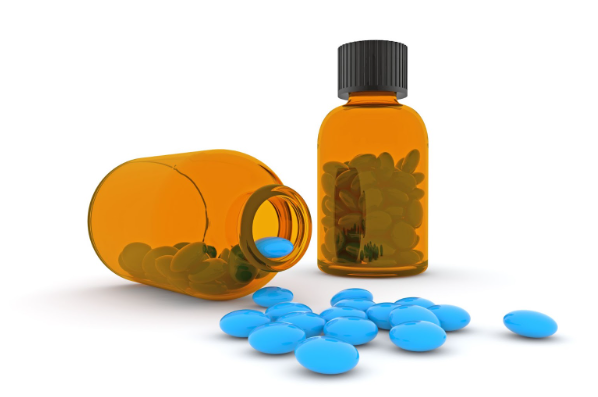
What is the Best Hemorrhoid Over-the-Counter Treatment?
March 5, 2025
What is Lupus?
March 7, 2025What is Prednisone Used For?

Prednisone represents a synthetic variant of corticosteroids doctors often use because they provide effective anti-inflammatory and immunosuppressive actions to heal many different conditions. Prednisone duplicates the actions of cortisol hormones produced by adrenal glands but plays an essential role in managing diverse bodily operations. Doctors typically rely on Prednisone to help patients struggling with allergic reactions, autoimmune diseases and respiratory system problems or inflammation. The following guide provides complete information about the medical applications of prednisone including its biological functions and possible adverse effects as well as its indications for medical provider prescriptions.
Prednisone and Its Role in Treating Medical Conditions
Doctors prescribe prednisone for diverse medical conditions involving acute diagnoses and chronic illnesses. As a versatile medication prednisone serves as an important treatment option for different types of illnesses. Below we will study the principal clinical applications of prednisone.
Prednisone for Allergic Reactions
Medical experts frequently prescribe users prednisone to treat acute severe allergic reactions. Multiple forms of allergies can benefit from treatment using prednisone such as hay fever alongside allergic rhinitis and skin allergies. Patients who take prednisone experience benefit from its ability to decrease inflammatory responses and control immune reactions which treats major allergic conditions alongside swelling and skin reddening and itching responses. It is particularly effective in treating:
- Anaphylaxis (severe allergic reactions)
- Asthma flare-ups
- Contact dermatitis together with several types of skin rashes

Treatment of Autoimmune Disorders

Prednisone functions as a fundamental therapy tool for treating autoimmune diseases. Immune system disorders develop because the body starts attacking its own tissues by mistake. Salvaging autoimmune disease symptoms is possible through immune system response reduction enabled by prednisone administration. Common autoimmune disorders treated with prednisone include:
- Prednisone enables joint inflammation and pain reduction for rheumatoid arthritis patients. For advanced treatment options, including inflammation-related therapies, consider scheduling an In-Office Infusion or IV Therapy consultation with our specialists.
- Doctors prescribe prednisone to treat lupus when the disease activates since lupus makes the immune system assault the tissue of the skin and joints and body organs.
- Prednisone serves as medication for multiple sclerosis patients to minimize inflammation together with managing symptoms during MS outbreaks.
- Doctors use prednisone to treat the symptoms of inflammatory bowel diseases including both Crohn's disease and ulcerative colitis. If you're experiencing similar symptoms, it's important to schedule a GI Consult to explore the right treatment options.
Prednisone for Respiratory Conditions
Described as a primary medicine to treat ongoing lung diseases that trigger airway inflammation. Airway obstruction from chronic obstructive pulmonary disease (COPD) and asthma produces severe breathing difficulties because of airway inflammation. Prednisone helps by:
- Reducing inflammation in the airways
- The therapy delivers improved ventilation along with a decrease in wheezing episodes.

- Preventing asthma attacks
Doctors prescribe short-term prednisone treatment to patients with COPD when they need to control their exacerbations between severe episodes.
Prednisone in Cancer Treatment

Doctors frequently combine prednisone with additional medicines when treating cancers that include leukemia and lymphoma. The medication supports cancer treatment by helping patients control both inflammation and pain symptoms. Some patients respond better to chemotherapy treatments when prednisone helps tumors reduce swelling and adapt when used with oncologic medication.
Inflammatory Conditions and Joint Disorders
When inflammatory conditions target joints and muscles and tissues doctors commonly prescribe prednisone as an anti-inflammatory medication. Common conditions treated include:
- Prednisone helps to lessen both the inflammation and swelling which develop during gout attacks.
- The management of acute inflammation and osteoarthritis flare-ups sometimes benefits patients through prednisone treatment although this method represents secondary treatment.

- To treat tendon and bursae (fluid-filled pockets near joints) inflammation clinicians use prednisone.
Prednisone for Skin Disorders
The treatment of inflammatory skin diseases including eczema, psoriasis and seborrheic dermatitis often involves prednisone as a medication choice. This medication helps patients manage their ongoing skin problems because it takes away inflammation and controls itchiness.
Prednisone in Kidney Diseases
Nephrotic syndrome which causes protein leakage through the kidneys could benefit from prednisone treatment. A treatment effect provided by this drug works through decreased inflammation and muted immune function to stop kidney tissue destruction.
How Prednisone Works in the Body
The medical system works through a hormonal process which duplicates cortisol to function like an adrenal gland hormone. Through its regulation of metabolism and inflammation along with immune response control cortisol becomes vital for diverse bodily operations. After receiving prednisone treatment patients undergo liver metabolism to produce the active substance prednisolone. Prednisone enters body tissues after becoming active and connects to cellular receptors to switch production levels of proteins responsible for controlling immune responses together with inflammation. This results in:
-
- The active form of Prednisone stops the creation of inflammatory agents which include prostaglandins and cytokines.
- The drug makes immune cells less active to stop them from harming body tissue while benefiting patients with autoimmune diseases.
Potential Side Effects of Prednisone

Short-Term Side Effects
- Increased appetite and weight gain
- Short-term prednisone use may result in aggressive mood swings as well as problematic anxiety. Patients also experience increased hunger and mood irritation.
- Insomnia or difficulty sleeping
- Fluid retention, leading to swelling
- Diabetes symptoms become worse because blood sugar levels rise dangerously high.
Long-Term Side Effects
- Osteoporosis (weakening of bones)
- Cataracts or glaucoma (eye problems)
- Trial consumption of prednisone restrains adrenal system activity which subsequently causes adrenal insufficiency.
- Immune system suppression creates an elevated risk of infections against the body.
- Gastric ulcers and stomach irritation
Patients need ongoing healthcare evaluation to control potential effects when taking prednisone as a long-term medical treatment.
When to Seek Medical Advice
You should take prednisone only under the close oversight of a medical professional when treating chronic health issues. Patients should seek immediate medical attention if they experience any severe side effects, such as:
- Sudden vision changes
- Severe stomach pain or gastrointestinal bleeding
- Unexplained weight gain or puffiness
- Illness symptoms develop alongside fever or chills symptoms.

It’s critical to follow your doctor’s directions precisely whenever Prednisone is prescribed because this helps decrease side effects while maximizing the drug’s effectiveness.
Conclusion: The Versatility of Prednisone
Finisone appears as a medical substance capable of handling numerous conditions across different medical fields including autoimmune diseases along with allergic reactions and various respiratory disorders. Prednisone functions as a vital medical instrument due to its dual power to minimize inflammation while stopping the immune response. You must use this medication responsibly with a healthcare professional because it presents possible side effects.
To learn more about prednisone benefits along with its medical applications check out Gastro NYC which offers specialized healthcare with expert assistance.



